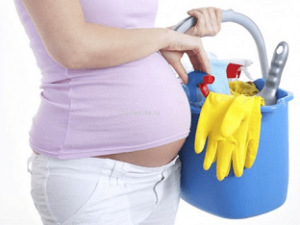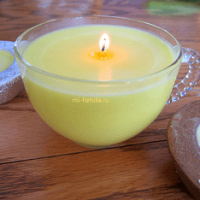 Most chemical cleaning solutions and disinfectants that you can find at the store have a variety of intoxicating chemicals inside them, yet only a few pregnant women know the dangers of being around cleaning detergents and the harm they could cause both her and her still unborn baby.
Most chemical cleaning solutions and disinfectants that you can find at the store have a variety of intoxicating chemicals inside them, yet only a few pregnant women know the dangers of being around cleaning detergents and the harm they could cause both her and her still unborn baby.
It is important that women know the possible risks that are present when they are using conventional cleaning supplies that have high levels of toxicity.
A recent research has investigated the connection between the use of everyday detergents as well as aerosols and air fresheners, during pregnancy, and continual wheezing in kindergarten children.
The study showed that kindergarten children that have been exposed to detergents most frequently during pregnancy were more than twice as likely to wheeze persistently throughout early childhood.
There are various chemicals included in household cleaning products that have effects that can range from simple skin or lung irritations to birth defects or even cancer. A chemical called Nitrobenzene which is most commonly found in furniture polish is associated with birth defects and cancer. In addition to that, chemicals such as bleach and ammonia are especially strong, and may cause dizziness and nausea in pregnant women.
It is also recommended to avoid using chemicals such as Alkylphenol Ethoxylates, Volatile Organic Compounds, and Triclosan because of the risks they have on the pregnant woman and her fetus.
There are a few precautions that could be taken to avoid harm to both the mother and her fetus. Firstly and most importantly is ventilation. It is extremely important that you ensure that the area you are cleaning is well ventilated to help the air circulate and get rid of all the nasty chemical fumes.
Keeping the windows open, turning on a fan, or keeping the door open while cleaning that area would be a good form of ventilation to reduce the risks of unintentional inhalation of toxic fumes which are the main cause of irritations, nausea, and wheezing. Secondly, wearing long sleeved shirts and pants as well as gloves and a mask will help keep your skin out of contact with the cleaning detergents.
In addition to that, companies usually place warning labels on their cleaning products that warn about the dangers of using those specific products during pregnancy.
Furthermore, mixing two or more cleaning liquids together is extremely dangerous, especially when ammonia is being mixed with bleach because it emits toxic fumes which are severely dangerous when inhaled.
Lastly, cleaning in closed spaces such as ovens is not recommended because of the lack of air circulation and ventilation. It would be healthier if your partner or helper could attend to that matter.
In conclusion, it is important that the mother must take certain, yet simple precautions to ensure her offspring will lead a healthy life.
Those precautions range from simply opening a window, to maintain air circulation, to reading warning labels before purchasing a cleaning product. It is those little safety measures that can cause all the difference in the child’s health. A healthy child is priceless, so be cautious and you will be delighted with the outcome.









